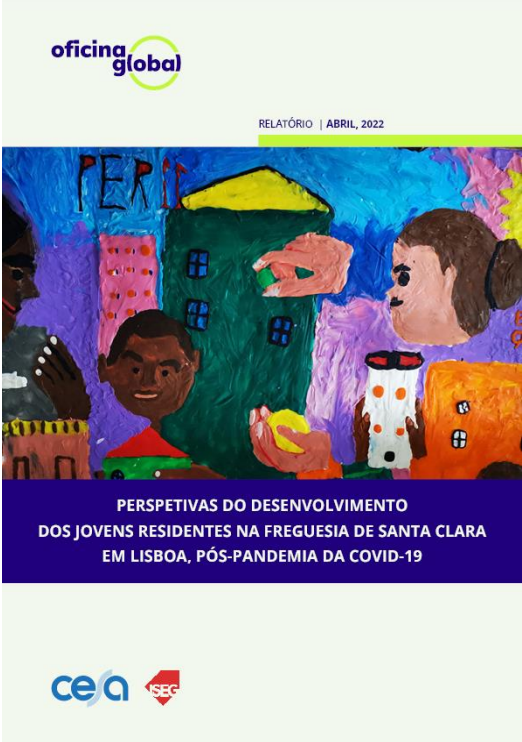Sociocultural Aspects of Development
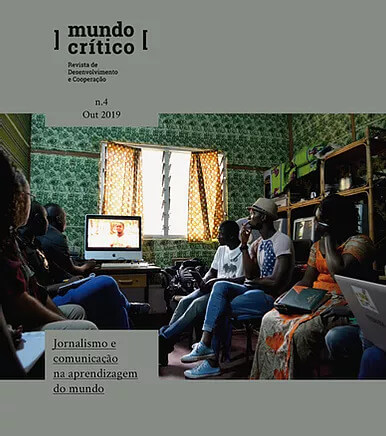
Mundo Crítico n.º 4: Jornalismo e comunicação na aprendizagem do mundo
Abstract:
How are Development issues represented in national and international media? What image — or images — of Africa are conveyed by the media? How can we avoid the “single story” about specific geographies and communities? What is the responsibility of the media, including new media and social networks, in the rise of populism in Europe and the USA and the spread of hate speech? And how can the relevance of development cooperation themes be promoted in traditional media as positive constructions of a shared future?
In this edition, Mundo Crítico – Journal of Development and Cooperation seeks to provide a space for reflection on the relationship between media, journalism, communication, and development, questioning whether there is a “journalism for development” and what contribution media and development cooperation can make to the necessary “learning of the world,” as described by Brazilian educator Paulo Freire.
We invited journalist Cândida Pinto and Mozambican anthropologist Euclides Gonçalves for an “imperfect conversation” about the current challenges facing journalism, the images produced about the African continent, and how development issues are (re)presented in Portuguese media. The “Knowledge and Circumstances” dossier features a collection of texts exploring the contribution of journalism to social change, journalism for development as a “bastard child,” the labyrinths of communication, and the role of communication for development. The section also includes reflections on media-sponsored journalist trips, the role of literature in “unsettling” narratives, and how refugees and migrants have been portrayed in European media, among other topics.
The “Ways of Seeing” section showcases the photographic perspective of writer Afonso Cruz on Iraq and Kuwait, and in the “Narratives” section, he shares the story of a street that serves as Baghdad’s third lung. Other narratives address the urgency of counterfactual thinking in contemporary times and the recurring story of Laovo Cande in the Mediterranean.
In the “Innovations” section, we highlight initiatives like the Journalism Creation Fund, which has enabled reporting on issues related to international development, and the Idemi project, which seeks to address the absence of African languages on the internet. In “Ecos Gráficos,” we confront the persistence of fake news on social networks (and in the media). Finally, as always, the “Escaparate” section offers additional reading suggestions on the topic of development cooperation.
Cite this Journal:
ACEP & CEsA (2019). “Jornalismo e comunicação na aprendizagem do mundo”. ISEG/CEsA – Centro de Estudos sobre África e Desenvolvimento. Revista Mundo Crítico nº 4 (Out 2019). ISSN 2184-1926.
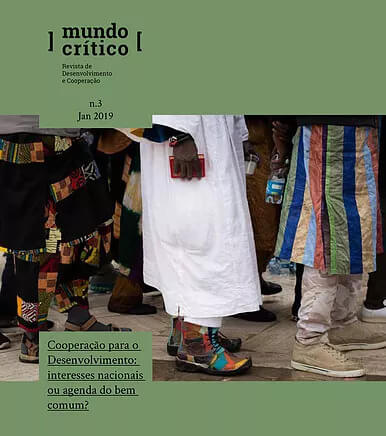
Mundo Crítico n.º 3: Cooperação para o Desenvolvimento: interesses nacionais ou agenda do bem comum?
Abstract:
This third edition of Mundo Crítico explores some of the pressing questions facing development cooperation today, both internationally and nationally. It aims to contribute to a diverse and multi-voiced portrait of a reality undergoing significant changes — conceptually, politically, and in practice — changes that may even challenge the very notion of cooperation as a core value in relations between geographic, political, and cultural spaces. The reasons behind the current turbulent times clearly extend beyond development cooperation itself, but the failure of certain models, or the inadequacy of others, in addressing contemporary challenges has led to their reevaluation within the broader scope of foreign policies in various states. This edition seeks to look to the future, contributing not only to a forward-looking reflection but also to a debate on the current state of Development Cooperation. It questions models, strategies, and narratives, aiming for political choices that we, as a society, can collectively identify with.
The issue begins with an “imperfect conversation”, adopting a critical tone, about the current trends in Development Cooperation and the pressing need to build sustainable local capacities. The “Knowledge and Circumstances” dossier opens with Six Questions on Portuguese Cooperation, a reflection by the Editorial Board aimed at fostering the necessary (and urgent) debate within the sector. The section features articles on diverse perspectives and approaches, including those of countries like China and Norway, recent decisions by Portuguese Cooperation regarding Official Development Assistance, and a reflection on the professionals of the “development industry,” the non-governmental sector in the PALOP countries, and the changes and actions of NGOs in Angola. Additionally, the issue includes an article on women in comics, opening pathways for cooperation and solidarity.
The “Ways of Seeing” section focuses on migration to Europe through the lens of Italian photographer Mario Badagliacca, showcasing objects brought by migrants landing in Lampedusa. The Narratives section presents two journalistic works: one on the Jamaica neighborhood in Portugal and another on a reunion in Ethiopia following the peace agreement with Eritrea.
We revisit the “Innovations” section (introduced in the first issue), with examples of processes promoting human rights in Guinea-Bissau and within the CPLP, as well as cooperation in education between Portugal and Mozambique. The edition concludes with “Ecos Gráficos”, featuring comics, and a curated selection of reading suggestions in Escaparate focused on the current state of Development Cooperation.
Cite this Journal:
ACEP & CEsA (2019). “Cooperação para o Desenvolvimento: interesses nacionais ou agenda do bem comum?”. ISEG/CEsA – Centro de Estudos sobre África e Desenvolvimento. Revista Mundo Crítico nº 3 (Jan 2019). ISSN 2184-1926.
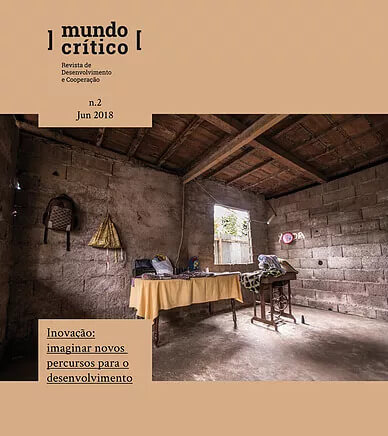
Mundo Crítico n.º 2: Inovação: imaginar novos percursos para o desenvolvimento
Abstract:
What is “new” in “innovation and development”? This question served as the starting point for the challenge we posed in this second edition of Mundo Crítico, aiming to intersect diverse practices, experiences, and perspectives on the “innovation” agenda within international development cooperation.
Perhaps the greatest potential of the international “innovation and development” agenda lies in questioning the dichotomous logics that permeate relationships between “developed countries” and “developing countries.” These dynamics often conceive the former as spaces of “invention, recreation, or renewal” of theories, technologies, or organizational models, and the latter as mere recipients, importing products, values, and ideas. In light of the transformations in the world we live in and the uncertainties surrounding its direction and impacts, it becomes imperative to question what is truly “new” in “innovation and development”—recovering memory, observing the present, and daring to glimpse the future.
This edition begins with an “Imperfect Conversation” about the various dimensions of innovation, which go far beyond mere technological aspects. Social innovation must be accompanied by organizational innovation, fostering a process-oriented approach for truly inclusive and change-oriented development. In the dossier of “Knowledge and Circumstances”, reflective articles explore experiences and practices of innovation for development, including initiatives in creative economies in countries like Cape Verde, Guinea-Bissau, and São Tomé and Príncipe; cash transfers in humanitarian aid contexts; and a project to improve the quality of education in Latin America through school lighting, to name just a few examples. The “Ways of Seeing” section features a photographic dossier showcasing the faces of women from São Tomé and Príncipe, resulting from a project affirming the rights of Santomean women. The “Narratives” section presents practical cases and protagonists who leverage innovation and creativity to tackle diverse challenges.
Finally, we introduce a new section — Ecos Gráficos — dedicated to comics, as well as Escaparate, which serves as a gateway to further readings.
Cite this Journal:
ACEP & CEsA (2018). “Inovação: imaginar novos percursos para o desenvolvimento”. ISEG/CEsA – Centro de Estudos sobre África e Desenvolvimento. Revista Mundo Crítico nº 2 (Jun 2018). ISSN 2184-1926.
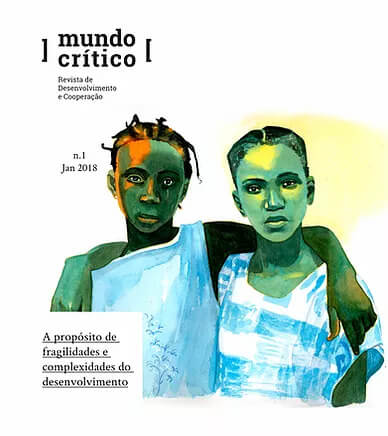
Mundo Crítico n.º 1: A propósito de fragilidades e complexidades do desenvolvimento
Abstract:
In an era of multiple challenges, spanning from the local to the global scale, Mundo Crítico – Journal of Development and Cooperation seeks to address the need for debate among public and private social actors, regardless of their size or geographic and thematic scope, with a critical, persistent, and dialogical commitment. It aims to foster unlikely dialogues between text and image, between art and science, between academics, artists, and practitioners, and among Portuguese-speaking individuals from diverse geographical and cultural spaces. The debate aspires to be comprehensive, with a particular focus on the ongoing social, economic, and political transformations shaping the world we inhabit.
The guiding principle of this platform is rooted in a vision of development as a multidisciplinary social action and the complementarity of various actors, both individual and collective. It considers cooperation among peoples as one of the pillars upon which a shared vision of human rights, well-being, and progress for humanity—both today and for future generations—can be built. A journal of critical thinking to reflect and act.
Cite this Journal:
ACEP & CEsA (2018). “A propósito de fragilidades e complexidades do desenvolvimento”. ISEG/CEsA – Centro de Estudos sobre África e Desenvolvimento. Revista Mundo Crítico nº 1 (Jan 2018). ISSN 2184-1926.
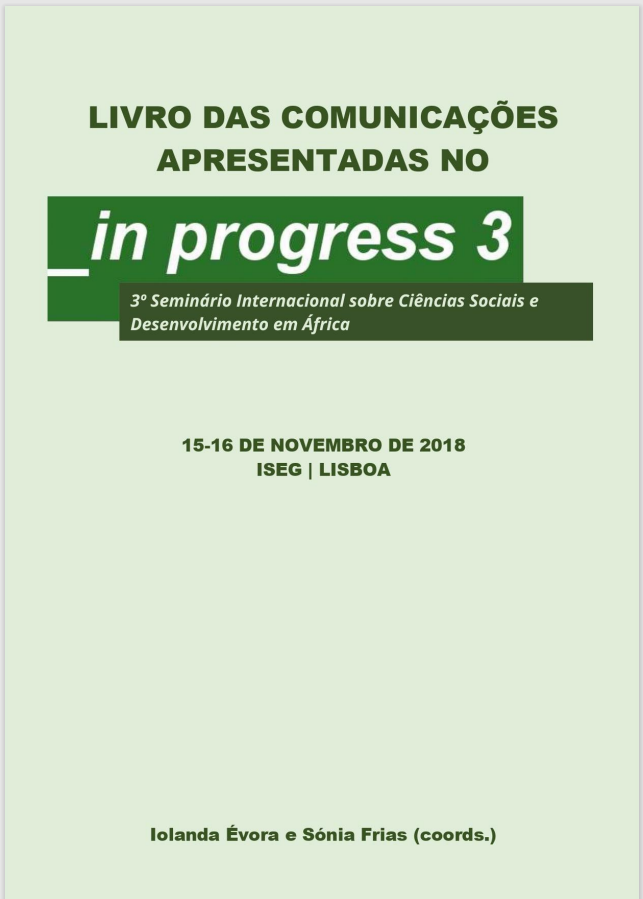
Book of Papers Presented at the In Progress 3 Seminar
Abstract:
This third edition of In Progress, Seminar on Social Sciences and Development in Africa brings together works by researchers and postgraduate students whose study and research theme is contemporary Africa and its development, supported by scientific currents that stimulate new approaches beyond the “development”, exploring the notions of “well-being” or “good living” and remaining close to currents of thought and debates between Africa, Asia and Latin America. The texts include themes such as: fieldwork: practical, theoretical and methodological issues; politics, civil society dynamics, development; culture, thought and change; strategies for cooperation and development; and populations, mobility and well-being. The second part of this work contains the reflections of the speakers invited to the In Progress 3 seminar, which include both a critical perspective on the dominant discourses and methodologies in the field of development policies linked to mobilities, economy and identities, as well as the contribution of financial growth for economic growth and several of the issues to be taken into account in discussions on economic sustainability, taking the example of SADC member countries. The final conference refers to the times and questions that are important to retain and what is important to reflect on in the context of social and human sciences, in particular, when the debate is about the (neo)colonial perspective and contemporary global challenges for African Studies.
Cite this e-book:
Évora, Iolanda e Sónia Frias (coord). 2024. Livro das Comunicações Apresentadas no In Progress 3 com Revisão por Pares : 15 a 16 de Novembro de 2018 no ISEG/ULisboa. Lisboa: ISEG – CEsA
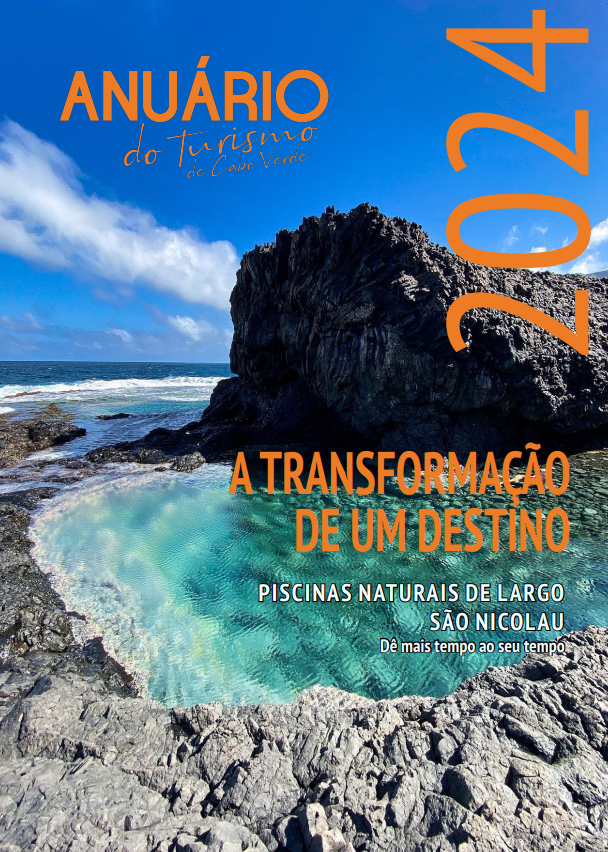
Turismo Costeiro e Marítimo em Cabo Verde. Rumo a um destino sustentável
Cite this paper:
Sarmento, E. (2024). Turismo costeiro e marítimo em Cabo Verde. Rumo a um destino sustentável. In Morgado, Carlos (2024). Anuário do Turismo de Cabo Verde 2024: a transformação de um destino (pp.30-32). Praia, Cabo Verde.
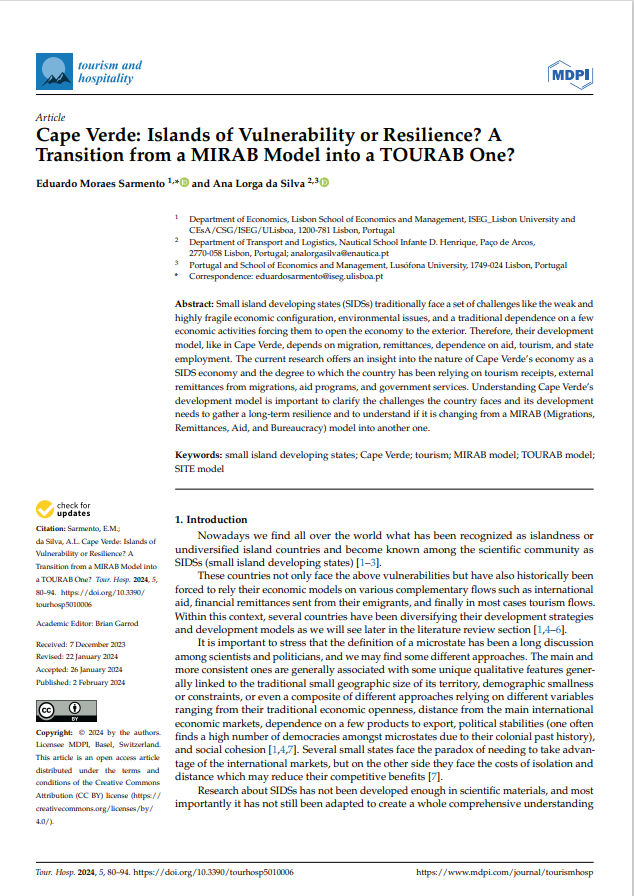
Cape Verde: Islands of vulnerability or resilience? A transition from a MIRAB Model into a TOURAB one?
Abstract:
Small island developing states (SIDSs) traditionally face a set of challenges like the weak and highly fragile economic configuration, environmental issues, and a traditional dependence on a few economic activities forcing them to open the economy to the exterior. Therefore, their development model, like in Cape Verde, depends on migration, remittances, dependence on aid, tourism, and state employment. The current research offers an insight into the nature of Cape Verde’s economy as a SIDS economy and the degree to which the country has been relying on tourism receipts, external remittances from migrations, aid programs, and government services. Understanding Cape Verde’s development model is important to clarify the challenges the country faces and its development needs to gather a long-term resilience and to understand if it is changing from a MIRAB (Migrations, Remittances, Aid, and Bureaucracy) model into another one.
Cite this article:
Sarmento, E.; Silva, Ana (2024). Cape Verde: Islands of Vulnerability or Resilience? A Transition from a MIRAB Model into a TOURAB One? Tour. Hosp. 2024, 5(1), 80-94; https://doi.org/10.3390/tourhosp5010006. MDPI. Special Edition Submit to Special Issue: Small Island Developing Countries (SIDS): Tourism between Innovation and Authenticity for Better Sustainable Developing Paths
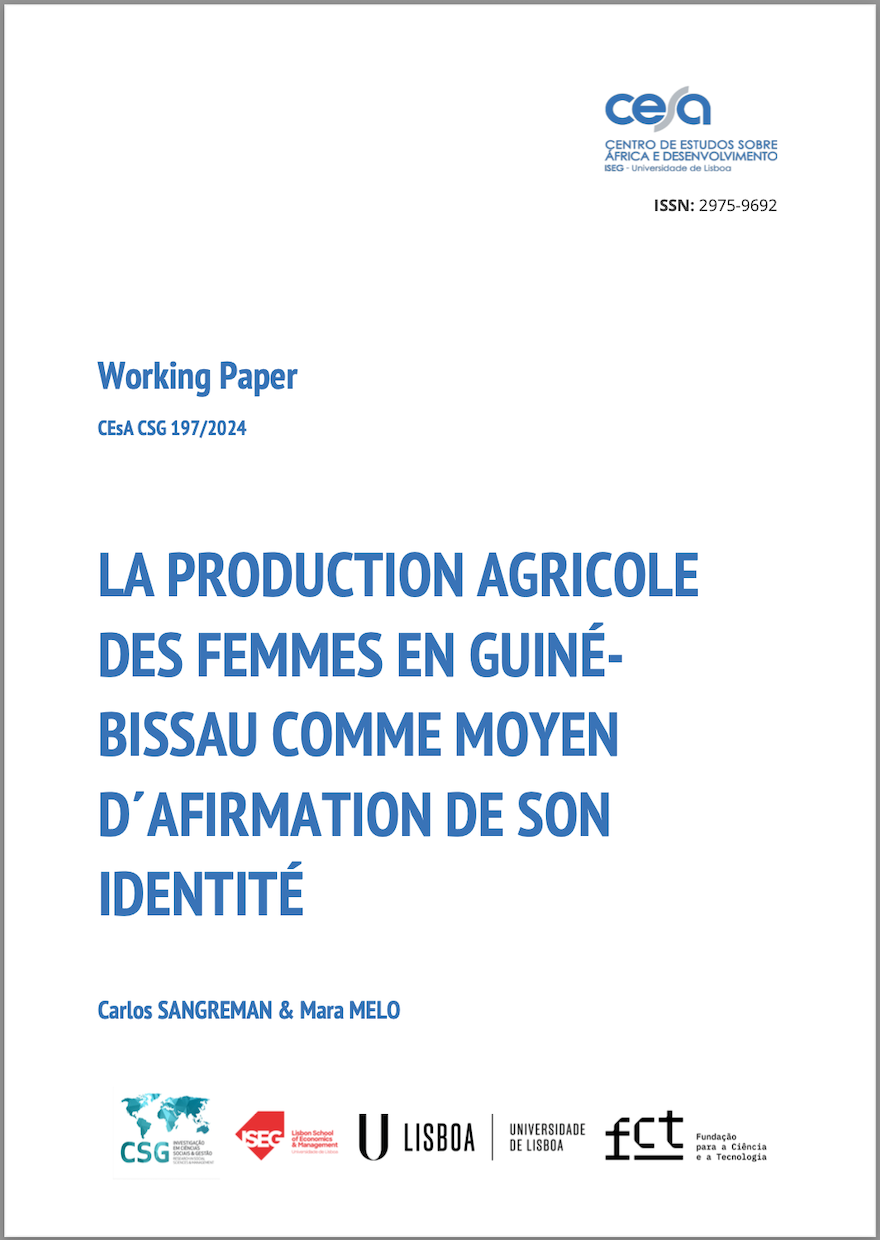
Working Paper 197/2024: La Production Agricole des Femmes en Guiné-Bissau comme Moyen d´Afirmation de son Identité
Abstract:
This working paper is an intermediate product of the study done for Swiss Cooperation in Guinea-Bissau, written in French without any point in Portuguese. What we demonstrate, as well as the principles of restitution and appropriation by the persons or institutions that access to respond to surveys or interviews, are words that do not translate into concrete actions for this Cooperation. The data were obtained by surveys and interviews in the regions of Bissau, Biombo, Bafatá, and Oio, with the producers (which also include a limited number of male producers) of leguminous agricultural products, in a sample of 160 people chosen at random. At the option of the promoter, the study focused on the marketing of products and not on production. To better understand the results, it must be said that this business model is not very profitable, but it is an activity that gives a greater independence of women in relation to men in the family space, since decisions about the use of profits belong to the producers. It also has a potential environment of action for the affirmation of the social (and not just family) identity of women that should not be despised although, as far as we can see, this is expressed for now only in the organization of associations of producers.
Cite this Working Paper:
Sangreman, C. e Melo, M. (2024). “La Production Agricole Des Femmes En Guiné-Bissau Comme Moyen D´Afirmation De Son Identité”. Instituto Superior de Economia e Gestão – CEsA/CGS – Documentos de trabalho nº 197/2024
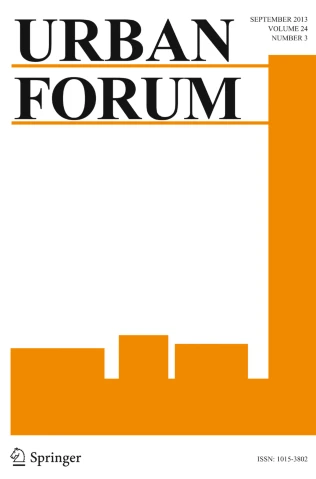
Armed Conflict and Urbanization in Cabo Delgado, Mozambique: A methodology for a critical inquiry
Abstract:
Mainstream urban theory fails to encompass urbanization in Africa. Among its many drivers, armed conflicts displace rural populations to cities, accelerating urban processes and impacting sustainability and governance — the phenomenon of conflict-induced urbanization. In the province of Cabo Delgado, a violent insurgency has been displacing thousands of civilians since 2017; many of whom have fled to the provincial capital Pemba, doubling its population in just 5 years. This article presents the theoretical framework and methodological design for an inquiry located within a contemporary critique of mainstream urban studies; the goal is to analyse conflict-induced urbanization in Pemba with a comparative case study, using participatory visual methods, for which a pilot study took place in September 2022. With this, the author aims to contribute to engaged urban studies in Mozambique and Portugal and to transform the trauma of war into opportunities for sustainable development and prosperity.
Cite this article:
Agostinho do Amaral, S. Armed Conflict and Urbanization in Cabo Delgado, Mozambique: A Methodology for a Critical Inquiry. Urban Forum (2023). https://doi.org/10.1007/s12132-023-09505-y
